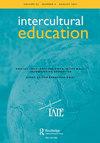走向多元文化、包容和多样化的评估——探究中学后学生的看法
IF 0.8
Q3 EDUCATION & EDUCATIONAL RESEARCH
引用次数: 0
摘要
摘要高等教育承认评价是教育学的核心组成部分。然而,K-12院校实施了不同的形成性评价应用,高等教育院校(HEI)仍然几乎完全使用传统的评价。为残疾学生(SWD)做出的调整通常是考试调整,而不是评估过程本身的修改。目前的研究旨在调查来自不同文化背景和能力的学生对文化反应性学术评估(CRAE)的看法,该评估也考虑到了SWD,并将他们视为一个独特的文化群体。通用学习设计(UDL)被用作残疾和非残疾学生形成性评价的指导框架。这项研究通过现象学方法采用了定性方法。12名本科生和研究生接受了深度半结构化访谈。结果表明,高等教育CRAE涉及三个主题:多元文化和多样性敏感性、评估方法的多样性和社会责任。根据参与者的陈述,只要设定界限以保持学术标准,学生群体就可以接受更灵活、更多样的评估方法。本文章由计算机程序翻译,如有差异,请以英文原文为准。
Towards multicultural, inclusive and diverse evaluation – Exploring post-Secondary students’ perceptions
ABSTRACT Higher education acknowledges evaluation as a core component in pedagogy. However, K–12 institutions implement different applications of formative evaluation, and Higher Education Institutes (HEIs) still use traditional evaluation almost exclusively. Adjustments made for students with disabilities (SWDs) are often exam accommodations rather than modifications in the evaluation process itself. The current study aims to examine the perceptions of students from different cultural backgrounds and abilities on Culturally Responsive Academic Evaluation (CRAE), which also takes into consideration SWDs and sees them as a distinct cultural group. Universal Design for Learning (UDL) was used as a guiding framework for formative evaluation for students with and without disabilities. The study used a qualitative method through a phenomenological approach. Twelve undergraduate and graduate students were interviewed using in-depth semi-structured interviews. Results showed three themes concerning CRAE in higher education: Multiculturalism and diversity sensitivity, diversification in evaluation methods, and social responsibility. According to the participants’ statements, the student population is ready for more flexible and diverse evaluation methods, as long as boundaries are set to preserve academic standards.
求助全文
通过发布文献求助,成功后即可免费获取论文全文。
去求助
来源期刊

Intercultural Education
EDUCATION & EDUCATIONAL RESEARCH-
CiteScore
2.30
自引率
8.30%
发文量
36
期刊介绍:
Intercultural Education is a global forum for the analysis of issues dealing with education in plural societies. It provides educational professionals with the knowledge and information that can assist them in contributing to the critical analysis and the implementation of intercultural education. Topics covered include: terminological issues, education and multicultural society today, intercultural communication, human rights and anti-racist education, pluralism and diversity in a democratic frame work, pluralism in post-communist and in post-colonial countries, migration and indigenous minority issues, refugee issues, language policy issues, curriculum and classroom organisation, and school development.
 求助内容:
求助内容: 应助结果提醒方式:
应助结果提醒方式:


